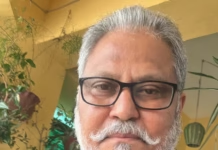Pb Govt to launch Drug Abuse PO program on 23 March
In its crusade against the menace of drug addiction, Punjab government is launching Drug Abuse Prevention Officers (DAPO) Program that will a multi pronged module not only fighting against drug abuse but also working in the field of rehabilitating the addicts and motivating vulnerable youngsters to stay away from drugs. The Chief Minister Captain Amarinder Singh will launch DAPO from Khatkar Kalan on March 23 wherein he will administer oath to all the DAPO volunteers across the state.
The IG Special Task Force (STF) Punjab Police Balkar Singh Sidhu said this while presiding over meeting of Deputy Commissioners (DCs) and Senior Superintendents of Police (SSPs) of Bathinda, Mansa, Sri Muktsar Sahib and Faridkot. Accompanied by IG Bathinda range Mukhwinder Singh Chhina, he stated that the main motive of drive is to have Nasha Mukt Mohallas (NMMs) in vicinity. The work on enrolling volunteers for the program has already begun in various districts.
To implement program effectively reaching the grass root level, District Mission Teams would be constituted. DCs, SSPs, Civil Surgeons and other district officers will be a part of this team. Same module of teams will be constituted at sub division and village level too. He said that anyone can contribute towards the eradication of drugs in Punjab by being eyes and ears of government by becoming DAPO volunteer. All the DAPO volunteers will be imparted training and issued identity cards. Application forms for becoming DAPO volunteers can be collected from Saanjh Kendras of the state or downloaded from website www.ppsaanjh.in. Besides this, all the government employees will be official volunteers of the program.

He added that each DAPO will be responsible for creating awareness, facilitate de-addiction of victims identify and protect vulnerable people, promote sports or positive activity in locality and coordinate with administration.
IG Chhina added that once drug addicts start coming out of the closet, they would be put under de-addiction treatment for which unique identity cards will be issued to the patients to keep follow their trail. These patients would be covered under Outpatient Opioid Assisted Treatment (OOAT).













